Dr Angela Puca: Hello everyone. I’m Dr Angela Puca and welcome to the Livestream Symposium. I’m a PhD and a Religious Studies scholar and this is your online resource for the academic study of Magick, Esotericism, Paganism, Shamanism and today – Atheistic and Sceptical Witchcraft.
Before we dive into the conversation with our special guest, who I will be introducing shortly, I’d just like to remind you that this project is crowd funded and can only exist thanks to your support. So I would really appreciate any kind of help that you could give to support the channel. There is a Patreon that you can join, we have an amazing community with monthly lectures and all sorts of stuff, one-off PayPal donations, and you can join Memberships or SuperChat questions during this Livestream. Everything really helps to support the project. So thanks very much and now let’s invite our special guest.
Hello Sarah.
Sarah Lizbeth: Hi.
Angela: How are you today?
Sarah: I’m doing well. How about you?
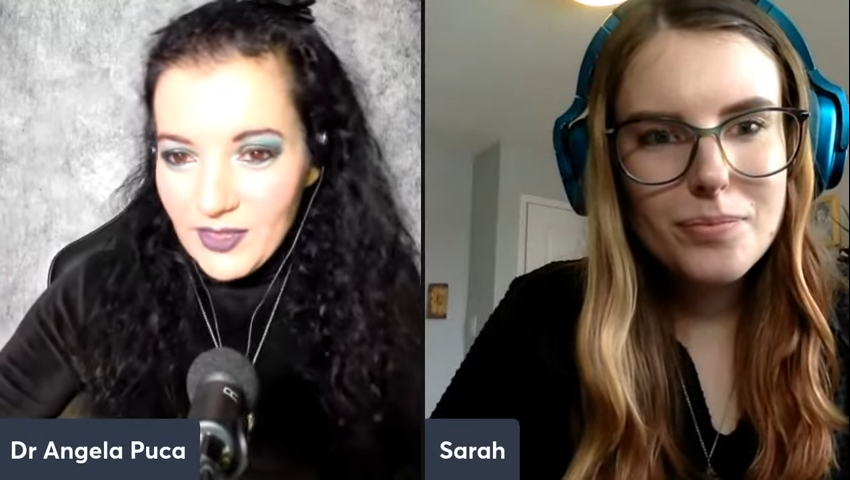
Angela: I’m OK, I’ve just had… speaking of Patrons, one of the lectures that I have monthly with my Magus and upper-tiers level Patrons and it was on Theosophy and Eastern thought. So it was really fun. I’m really proud of my community so I’m in a good mood now. And we were also talking by the end of our discussion, we were talking about atheistic Witchcraft. And I think that people have very strong feelings about it. So I’m really glad that you accepted to come in and talk about it.
So first of all guys, Sarah has her own YouTube channel called The Skeptical Witch. So you can go over and subscribe to her if you are interested in the topic and anyway, I mean why wouldn’t you, right?
So, I know that you are a PhD student. Can you tell us a bit more about your background in academia? I know that your channel tends to be from more of a practitioner’s perspective but I am also fascinated by your research.
Sarah: Yeah, yeah, sure. So first of all thank you so much for having me on. I’ve been very influenced and inspired by your work, especially…
Angela: Oh, thank you.
Sarah: … breaking down that barrier and trying to make academic content a little more accessible. So, yeah, thank you so much. It’s great to be here and so, yeah, I am a PhD student right now – almost a PhD candidate, very close to that. So I’m going to start…
Angela: Good luck with the upgrade. Do they call it an upgrade over there as well?
Sarah: No, no, we just call it candidacy, you have to pass candidacy exams and submit a proposal.
Angela: In the UK it is called an upgrade. But you still qualify as a PhD candidate afterwards but they call it upgrade, the kind of process to go through.
Sarah: Cool, I like that terminology – upgrade. Like levelling-up.
Angela: Yes, you level up from PhD student to PhD candidate.
Sarah: Yeah.
Angela: Until you are just a PhD.
Sarah: Yeah, exactly. Yeah, so my PhD research. I haven’t started my fieldwork yet, but that is probably going to start in the new year. I’m planning to do ethnographic fieldwork both online and in person. And my research is going to be focused on what are called “reverential naturalists” in a very general broad term. So these are people who maintain a materialist worldview, they are often atheists, they are nontheistic, and yet they often have a spiritual orientation – especially towards nature. So they have a wonder, and awe, sense about nature and a reverence for it and this includes a lot of atheistic Pagans and Witches as well. So that is going to be a central component of that. And I’m really interested in looking at the ways that science and religion and environmentalism are bought into conversation with one another. And the various kinds of, I guess, tensions and conflicts there as well as connections between these things. And how this liminal space between religion and non-religion is being increasingly opened up within contemporary society and we’re seeing more combinations of those kinds of attitudes and how maybe thinking about more like the divide between what we think of as religious and secular isn’t so distinct, like it’s very blurry in the contemporary world. So that is what I am interested in.
There has been a lot of research done previously like Neopaganism and its relationship to environmentalism and Ecopaganism and this idea that there is often an affinity with nature because of a felt kinship for nature and often that comes from a very animistic perspective or the sense that there are spirits in nature and having these connections with spirits. So I’m interested in looking at how people connect with nature from an atheist perspective and without that necessarily spiritual or divine, transcendent element about nature. And yeah, that’s the gist of what my research is going to look like.

Angela: That’s really exciting, it’s really fascinating. So yeah, and now I’m interested in how you would define atheistic. Well, yeah, how you would define atheism, to begin with? Because different people will define it differently.
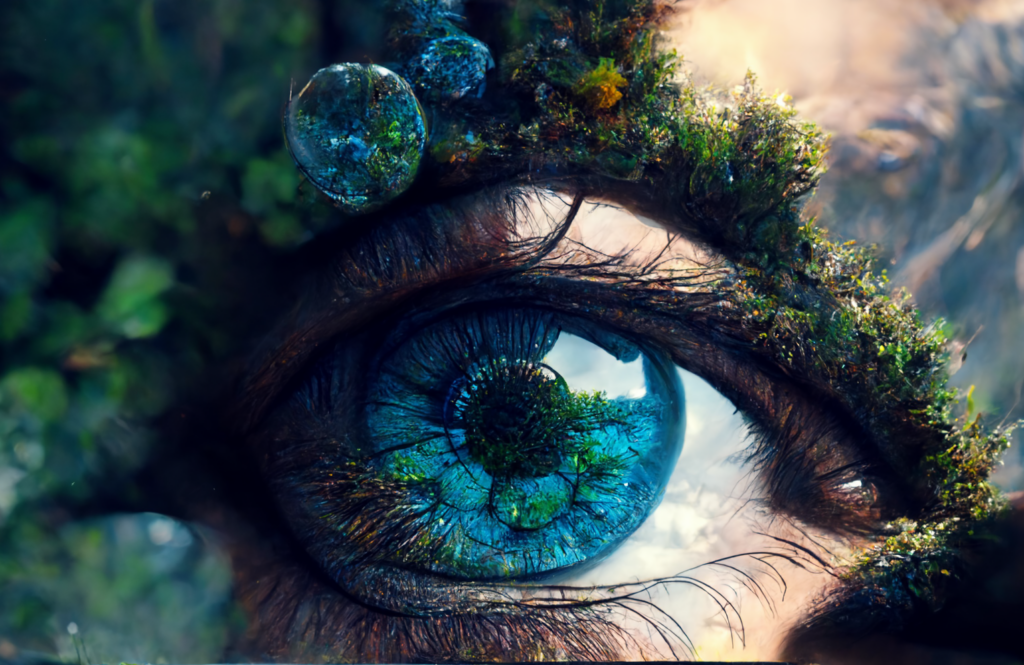
Sarah: Yeah, I think it can. So some atheist witches would consider themselves animists, especially identifying with that new animism, where it is very much like identifying with interconnectedness and relationships, the focus is really on the relationships between humans and non-humans and that kind of thing. So I do count that as part of it, although I think that most atheist Pagans and Witches are more like metaphorical animists, I guess if you could call it that. So not necessarily thinking that other non-human beings or plants or rocks or rivers have souls necessarily but seeing them being their own entities and just worthy of respect.
Angela: And why would somebody be an atheistic Witch as opposed to… I mean, I guess the question is also why would somebody, who is an atheist, would want to engage in Witchcraft? Because if you don’t believe in a metaphysical world, in its own right, what’s the appeal of Witchcraft?
Sarah: Right. I think there are a lot of different answers to that question and I feel different atheist Witches will have different responses to that. But I think that a few of the reasons are… a lot of atheist Witches and Pagans are people who are coming out of religious backgrounds so a lot of them have come out of very strict, dogmatic, Christian backgrounds and I think we see that with Neopagans in general as well. A lot of them are coming from these different religious traditions that are a little bit more rigid in the sense and they find more openness and a more welcoming community and just more freedom in their practice and Neopaganism in general. And I think that there is even more freedom within this atheistic approach to it. So a lot of atheist Witches, I think, are coming to this kind of Witchcraft because they’ve found that more traditional Witchcraft is maybe more restrictive in certain ways. There are certain ways of doing it and they find that they are being told that there is a right way of doing things and a wrong way of doing things. But within the atheist context, because there isn’t that necessarily divine element to it really, it is very much about what works for you personally and having the freedom to work with that, in a personal sense is really important to a lot of practitioners.
Also, atheistic Witchcraft is, I think, for a lot of people it’s largely psychological. So there are a lot of psychological benefits that come with doing spell-craft and doing rituals and things like that. And engaging in these practices when the focus is on personal, internal transformation and things, and there are ways to look at it where it is more about causing transformation and change within the self which can then go out and change the world in certain ways. Does that make sense?
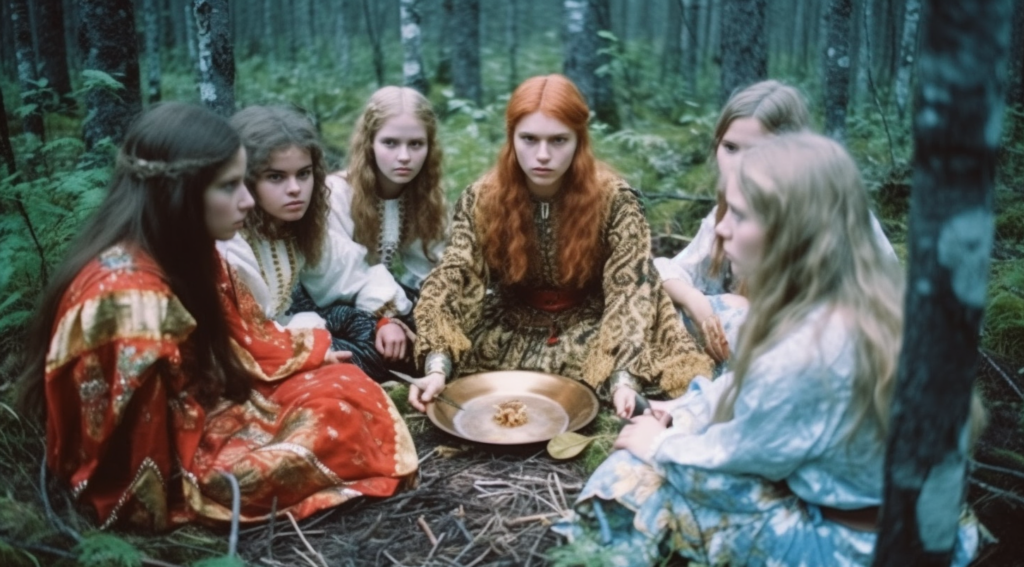
Angela: And what distinguishes it from psychology? If it is psychologically based, why would it be Witchcraft and not a form of psychology? What makes it Witchcraft?
Sarah: That’s a good question. I think because it is using a lot of the components of Witchcraft. So it’s using spells and certain rituals and things and it is very much in this witchcraft kind of context. And it is very much out, you know, using intention to enact change. And that’s how I see Witchcraft and Magick as being very much focusing intention to enact some kind of transformation. And I think that atheist or sceptical Witchcraft is doing that just from a different perspective, a more materialist, grounded perspective. And, yeah, so it is very psychological so it stems from that psychological model of Magick in certain ways. And it can use various elements taken from psychology and combining that with more traditional forms of Witchcraft and Folk Magic and things like that.
Angela: I’m trying to combine all of those things in my head – absorbing. Yeah, as I told you in private before this conversation, I am sceptical about sceptical Witchcraft so that’s why I was particularly excited to talk to you more about it so I could better understand it. So one of the reasons, I can tell you where my scepticism comes from – I think that on one hand, when there is talk of atheistic Witchcraft I really don’t think it classifies as atheistic. That’s one of the things because, by atheism, I guess, usually what is meant is not believing in any god or any entities, any metaphysical entities. But I don’t know, I just struggle – maybe it is my own limitation, but I struggle to grasp how is it possible to practice Witchcraft without entertaining any belief in any metaphysical entity. You know, even the spirits of the trees. I can easily see how Witchcraft can be practised by an animist for instance or somebody that doesn’t believe in a personal god or even a hard polytheist that believes in, you know, ontologically real gods. So I can get that, I think I struggle more to understand how Witchcraft and even Paganism – because I also want to get into that, you know, the idea of atheistic Paganism. Why then adopt the term Paganism then since these are concepts? Both Witchcraft and Paganism are imbued with religious and spiritual and metaphysical elements. Why entertain them, to begin with, if you are a hard atheist? So on one hand my mind goes to maybe atheism is a spectrum, just like polytheism, maybe there is a soft atheism and a hard atheism, so I’m trying to kind of figure these things out as I talk with you. So I was just kind of giving you a view into what was going on in my mind.
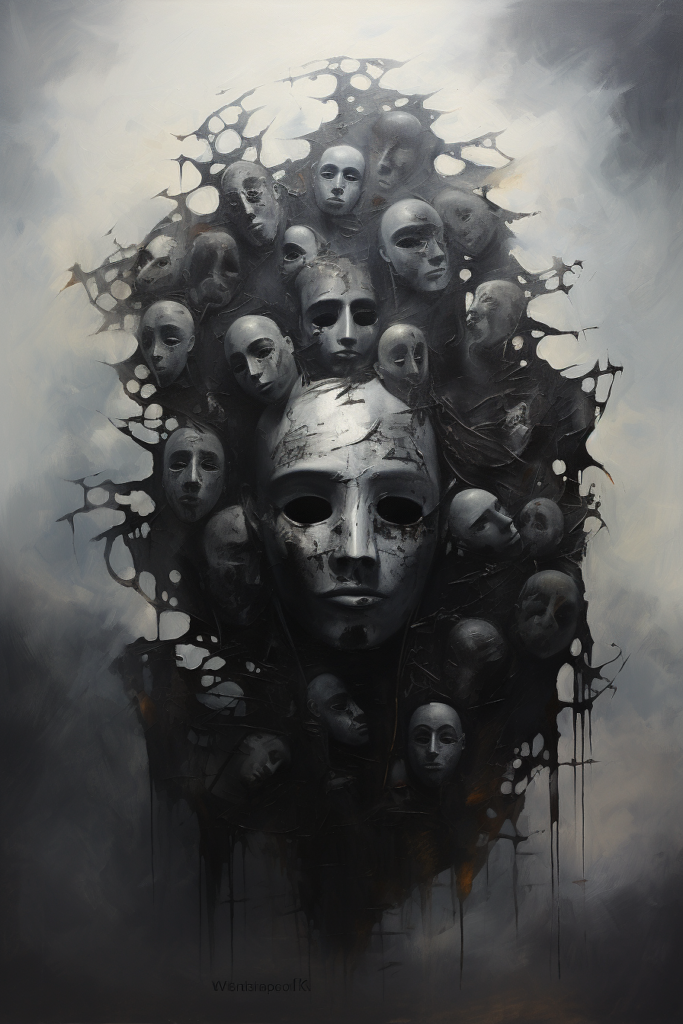
For instance, as for Paganism, how would atheistic Paganism work? So, when it comes to Witchcraft, atheistic Witchcraft or sceptical Witchcraft would be about bringing about change in your life by leveraging on mainly psychological elements and, I think somebody in the chat said, ‘placebo Magick.’ So leveraging on those psychological elements so that you can effect change in yourself and as a consequence, in your life. So I’m guessing that, from that point of view, atheistic Witchcraft doesn’t really entertain the possibility of altering one’s reality outside of your own physical agency. So, for instance in Witchcraft usually, you would have even spells that would affect whether something happens to somebody else at a distance. You know, for instance, healing or other types of Magick. So are those types of practices excluded in atheistic Witchcraft?

Sarah: I think it depends on the person. I think that for a lot of atheist Witches, those practices would be excluded but it is not necessarily always the case. I think that there are so many different kinds of belief within this broad context of atheistic Witchcraft and for a lot of people it is based on that idea of placebo Magick.

So there is an atheist Witchcraft YouTuber called Sedna Woo, I don’t know if you have heard of her channel, but she uses the term an ‘open-label placebo’ – so this idea that even if you know it is a placebo, there have been studies that show that this placebo can still work for you, right. So if you’re casting a spell to get a job, for instance, from this perspective it’s not like you are enacting some change in the world to cause someone out there to, you know, pick up your resume and say this is fantastic, let’s hire them. It’s more about potentially making yourself more confident or having a more positive outlook so that when you go into your next interview you’re more likely to act in certain ways that will get you to that goal that you have, ultimately. So it is more like a catalyst for internal transformation than really changing something external, for a lot of people but for others that is not necessarily the case. I think for me, my own, kind of sceptical Witchcraft was very much influenced by Chaos Magick and some ideas coming out of that and really this idea that belief can be used as a tool. Belief doesn’t have to be static. So I don’t necessarily have to believe in everyday life, like all the time in the magical forces or these divine entities or think like that. But when I’m going into a practice then I can use that and use a belief in that as a way of doing Magick and of making things happen. And in those moments I might believe that you know, yes I can fully affect objective, tangible reality in certain ways and make changes out in the world rather than just focusing on internal transformation. So there are a lot of different kinds of ways of approaching it and a lot of different views on it I guess. There isn’t just one way of doing atheistic Witchcraft.
Angela: That reminds me of the concept of provisional belief. Maybe that could be useful. I can’t remember who the scholar is Turner, Skinner something like that. I will have to put it in the infobox afterwards. But the idea is that… and Carlo Acutis also talks about that. The idea is that often a belief is not something that people don’t just hold and it’s static but people can also hold provisional beliefs. So it is not the case that I believe that this is absolutely real and absolutely exists but I believe it because it is something that will help me achieve something that that belief will be conducive for. So that kind of reminds me a bit of provisional belief.
And Lane was saying, when you grow up in the Christian Church, “atheist” means anyone who does not believe in the Christian God, without belonging to another religion. What do you think about that?
Sarah: Yeah, I mean I think that the concept of atheism kind of evolved out of Christianity because of this concept of belief in God and even of religion when we talk about that. But that whole idea really came out of Protestant Christianity and what we think of as religion and belief and non-belief and things – it’s very influenced by Christianity. I do agree that this kind of concept of atheism is coloured by this Protestant Christian perspective. But I personally didn’t grow up Christian, I grew up with atheist parents, so it’s difficult for me personally to relate to that and know those experiences but I am very interested in learning from people who have had experiences growing up in Christian contexts and then becoming atheist because of that, or moving out of that.

Angela: Yeah, yeah, I think that answers the question. Probably the question was coming from a point where one is trying to clarify what atheism means to begin with, especially when it intersects with Witchcraft and Paganism. It might be more difficult to understand what we mean by atheistic. But I think you were very clear that it was about the psychological… in a way psychological conditioning. Is there any, other than affecting change in yourself and in relation to that change in the environment, is there any spiritual benefit that atheistic witches or sceptical witches want to gain from the practice? Or is it just about improving yourself through psychological means and employing some elements of Witchcraft?
Sarah: I think there can be a lot of other benefits. So one of the major things is community too. So, you know, people who have maybe felt like outsiders in Christian communities or in more traditional kinds of Witchcraft or Pagan communities have found community in this atheistic, secular, science-based Witchcraft and Paganism and they found connections with other people. That’s often very important for people especially coming out of different religious backgrounds and missing that community element and those connections and things. So that certainly has been a huge, huge element for a lot of people. And then I’m also really interested in the cognitive science element of these things too. Be it the changes in consciousness that they can affect and what that means. So I’m not a psychologist at all, by any means. I’ve taken a few classes in cognitive science but that is about it. But I find it really interesting to think about these things. And there have been various studies to show that engaging with ritual and using various techniques of the body or of meditation or things like rhythmic drumming, anything that to get into these non-ordinary states of mind can have very transformative effects on people. So there have been studies that show that these kinds of non-ordinary states can create a sense of unity with the rest of the world, I guess. Kind of like a feeling of being interconnected with the world outside of one’s self and being able to transcend the ego almost, in these kinds of ritual or magical moments. And I think that that can be really beneficial for a lot of practitioners. Especially in the context that I’m looking at it where it is very much those kinds of connections with nature and feeling interconnected with nature is very important. So getting into these ritual mindsets can help foster those feelings of oneness with the natural world and increase kinship, I guess, with the non-human world too.
Angela: Yeah, I feel persuaded.
There is Hank that is asking, what is the academic beginning of the term and use of the term atheist?
Sarah: The academic beginning? I’m not actually sure, I’m not really sure about that. It is not something that I really have an answer for right now. I’m sorry.
Angela: I’m not sure about that either. The first time that… because I have never researched atheism to be fair. Because I think that atheism tends to be talked more about in Theology and in Christian Studies but yeah, I’m afraid I don’t have an answer either.
Sarah: Yeah, this is definitely something I want to look into more for sure because that would be really interesting, but yeah, historical view of atheism and diving into that. I know that right now in the research on atheism, most of the work that I’m looking at right now has to do with non-religion and religion in society and there aren’t a lot of studies that look at what it means to be a religious atheist. I think that this is like a UV-Kind strange phenomenon in certain ways.
Angela: That is why you are doing a PhD on it.
Sarah: Yeah, exactly. There isn’t a lot out there right now on what it means to be a religious atheist.
Angela: Yeah, I’m familiar with the “nones.” In fact, they have become quite popular for a couple of years. Obviously, I know more about what happens in Europe when it comes to that but in the UK, for instance, there are quite a few scholars that talk about so-called nones, who are non-religion so they are shortened from that. So it’s not the Nuns in the monastery, it is the people that identify as non-religious when they have to tick the box of what kind of religion do you follow. And it turns out that non-religious people are actually very religious. So, yeah, I think it’s interesting to have a study on atheism. In Italy there is a national association, a national atheistic association for atheists and sceptics, I guess, we can translate it as. But it tends to focus more on allowing people to have rights that they have lost because of the Catholic hegemony in the country. So, for instance, when you are born in Italy you are basically baptised automatically when you are two or three months old. And in the past, there wasn’t a chance to exit the Catholic Church, so somebody just decided for you that you were going to be registered as a Catholic forever and ever. And as a consequence, you would have to have a Catholic funeral, for instance, if you died and you didn’t want to. So they basically had a fight so that it was possible for the Italian law to include the possibility of exiting the Catholic Church. Which means that you get excommunicated but you can ask for your name to be removed from the register of Catholics. This is just an example that comes to mind. But when you think about atheists, the atheists that I know, don’t engage with any religion at all. Not even religious things or religious practices. So I think that it is perhaps unique, an atheistic approach to something that would otherwise be considered religious. So it seems more like an atheistic angle to experience a religious practice – I don’t know. Probably thinking out loud.
Sarah: Yeah, I know, yeah. I also think that being theistic and being religious don’t necessarily have to go together. They are not married together in a sense. I do think you can be atheist and religious and I think that is demonstrated by atheist Pagans, for example, who claim to be religious. And yeah, they don’t believe in any gods or a lot of them don’t believe in spirits or energies or anything that cannot necessarily be explained by empirical science as we know it today. So anything beyond that framework they don’t necessarily believe in. Also, reverential naturalism is generally atheistic and within that, there are various groups of religious naturalists who also claim to be religious and follow certain religious ethics and tenets. They have, you know, certain ways of living and doing religion that just doesn’t involve personal deities necessarily, it involves worshipping the natural world.
Angela: Yeah, I find it interesting this idea that you can be religious but be an atheist. So how do you define religion then?
Sarah: That’s a good question.
Angela: Religious Studies scholars still fight over it.
Sarah: Yes.
Angela: And mean to win it.
Sarah: I don’t know if you have comprehensive exams in Italy for moving to the upgrade or…
Angela: I did my PhD in England but even in Italy, yes, there is kind of a formal examination process that you have to go through to do the upgrade. Do you feel like you are in one now?
Sarah: No, no, no.
Angela: I hope not.
Sarah: No, I was just going to say that question, what is religion and how do you define religion is basically always a question in our comprehensive exam here in Religious Studies and just thinking about what that actually means. For me, religion, I think, is… I think it doesn’t have to be defined necessarily by the supernatural or anything to do with gods, I think it is more just about what people do in a way that connects with something beyond themselves. So, I don’t know, it’s a very broad way of thinking about religion.
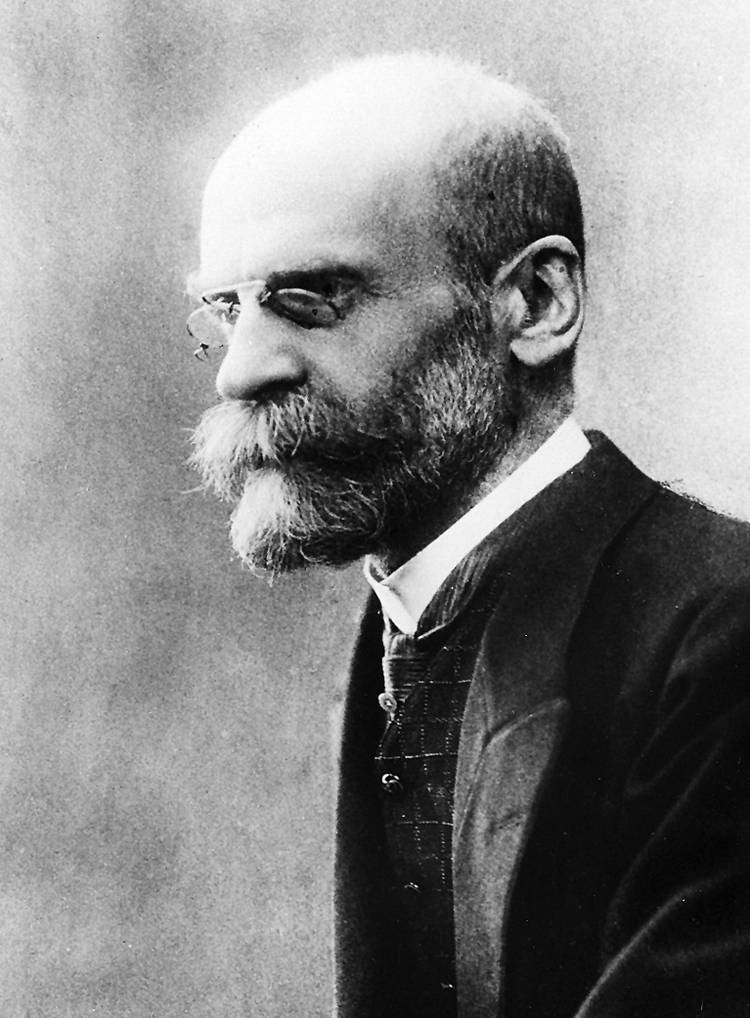
Angela: Very Durkheim, it reminds me of Durkheim.
Sarah: Yeah, yeah, kind of.
Angela: And his perspective of religion. So it is more about the social aspect?
Sarah: I think it can be. For a lot of people, it is about the social aspect and building that community. But I think it tends to be about internal transformation and knowing the self as well, so it can be very internal as well. I don’t know. I think that defining religion is impossible without specific contexts necessarily. I think it has to be context-specific and this is something that I’m thinking about a lot for how I am going to define religion within the context of my dissertation. And especially how I’m going to define it in relation to spirituality and magic and Witchcraft and all of these things are related and can be very entangled but are unique in their own way. And I also think it really depends on how practitioners themselves define these things, right? So a lot of people within atheistic Witchcraft might define themselves as spiritual but not religious, so that’s often a term that’s used. And seeing what they mean by that division, I think is important as well. Because religion we often associate with institutions and dogma, maybe, or particular creeds and doctrines and things. You can practice religion, I think, or spirituality in ways that don’t necessarily have those connections. I don’t know, hopefully, that makes sense. It’s still something that’s difficult for me to…
Angela: Still work to do.
Sarah: Yeah.
Angela: Fine, it’s difficult for everybody. But I’m not sure if you saw my video on What is Shamanism, but maybe that could give you hope, I don’t know, but that’s because I talk about my methodology for defining Shamanism which has the same kinds of complexities. So I don’t know, they might be useful if you are interested. That’s why, for instance, I used discourse analysis. And a lot of people who study Paganism and contemporary religious and spiritual practices use discourse analysis, you know, the Foucauldian methodology. Because when you have practices that are not… and you have a religious phenomenon that is not neat and tidy and is not structured and doesn’t have a central dogma, it is still a thing, it is still a religious actor – how do you define it? So that presents a challenge for a researcher and one of the ways researchers in this field tend to resolve that problem is by using discourse analysis where instead of finding, you know, somebody or a text that tells you what that religion is about, you identify patterns of meaning from the discourses that practitioners create within the community. And when you have enough data you will find that there are actually… you know, even in a religion like Paganism where everybody has a different viewpoint and a different way of explaining things there are certain patterns of meaning that do emerge when you put all the data together and the different explanations and the different interviews together. So I personally think that that is a useful methodological tool to use. Because it is difficult to define religion when you are not dealing with institutionalised and dogmatic religions, you know, like in our case.
Sarah: Yeah, yeah, no, definitely. And I am hoping to use discourse analysis as an element of this. Especially because a lot of the ethnography that I’m planning to do will be in an online context because these communities are very geographically dispersed. So it’s helpful, I think, to see what is going on online. That’s like a really important avenue for connection for a lot of atheistic Pagans and Witches. So having that, discourse analysis, in my tool-kit for doing that will be really helpful.
Angela: Yeah, and what about atheistic Pagans? Do you know where it started, how it started, you know, the concept of atheistic Pagans and how it looks like in terms the of practices atheistic Pagans have?
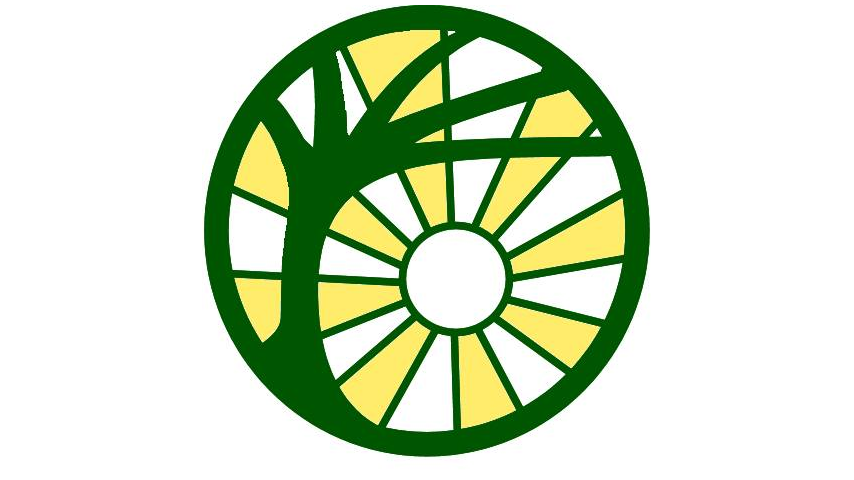
Sarah: Yeah, so there is a particular group of atheist Pagans, they call themselves Atheopagans and this has been an emerging tradition for a few years. I don’t know if it was the first instance of atheist Pagans. I think that it is a much older phenomenon but it hasn’t been talked about very much until now or very recently. So Atheopaganism was started by Mark Green and he wrote a book on it he has a blog on Atheopaganism and a Facebook group as well with a lot of members and people are continually joining it, it’s continually growing. So this is the biggest manifestation of Atheopaganism and the biggest group. This is a religion. It has certain kinds of tenets and certain values and it provides an ethical framework for people to live by that’s very much based on living, you know, in a community among human and non-human counterparts and treating people with respect including non-human persons as well. I don’t think it necessarily uses that kind of language but it is very environmentally grounded. So that is going to be a large aspect of it. , I think that theist Paganism, in general, tends to be very environmentally grounded, so it is very naturalistic where the focus tends to be on nature worship. So atheist Pagans often follow the Wheel of the Year still. They celebrate the Sabbaths and the changing of the seasons and everything and they maintain the nature-based elements of the practice and don’t necessarily include the gods or the polytheism, at least not in a hard way.
Angela: And in terms of the practices, what kind of practices do they celebrate, like the eight Sabbaths systematised by Wicca, or what kind of practices do they do?
Sarah: Yeah, yeah, so there is that kind of the Wiccan Wheel of the Year still maintained. Changes are made to it though to be less about deities and more about just the seasonal changes and things like that. A lot of atheist Pagans have altars as well like Wiccans or other Pagans would have. They often call them focuses instead of altars necessarily to try and move away from that religious language.
Angela: What do they call them again?
Sarah: Like a focus or a focal table. So just kind of an altar or something that will focus intention and will focus the mind, I guess. So what is involved in rituals and things? And a lot of them decorate their altars depending on seasons and things like that and they engage in rituals either alone or in groups when they have that kind of community. And these rituals can be about anything, they can be about celebrating the changes of the seasons or about enacting some kind of personal transformation or changing a mindset about something, or working towards a specific goal, something like that. Yeah, there are a lot of very similar elements involved that you would see in more traditional pagan practices, especially the very elaborate elements of ritual too, that are often associated with Neopaganism and the dramatic ritual elements. They tend to see these as being important to getting into that ritual mindset and moving out of ordinary states of consciousness and into ritual states of consciousness. It’s still about changing perspectives and getting into different ways of seeing reality but without, necessarily, the idea that there is a separate divine world, it is still rooted in materialism.
Angela: And what’s the relation between atheist Pagans and the rest of the pagan community? How do the two relate?
Sarah: Yeah, that’s a good question. It’s different for everyone, so I can’t really speak for everyone, obviously. I know there are some Neopagans, like more traditional Neopagans who are very much against atheist Paganism. They don’t think it is possible or they see it as a kind of cultural appropriation or spiritual appropriation almost because they don’t have that same view of deities and they don’t have that polytheistic element. There are a lot of Pagans who believe that you do have to be polytheistic or at least animistic in some way to be Pagan, really today. But then there are other Neopagans who are completely open to atheist Pagans and they see it as being just acceptable and they bulk them into the greater Neopagan framework. And then on the Atheopagan side or atheist Pagan side, I know that there are some atheist Pagans who are very much reacting against other Neopagans. So some of them are coming out of more traditional neopagan worlds and they are very antagonistic towards the more magical or divine aspects of it and they are, yeah, reacting against it really. But then there are others who are much more open to these kinds of different ways of being and knowing and of being Pagan, who may not necessarily believe of always believe in gods and spirits and magic and things like this but who are very open and accepting of it. So there is a whole spectrum of attitudes and relationships and things and this is something that I’m very interested to explore more as I do my fieldwork.
Angela: Yeah, it is too bad that there are some Pagans that would react strongly against atheistic Pagans. But, yeah, it’s kind of human nature sometimes.
Sarah: Yeah, I agree.
Angela: Yeah, but I think that generally speaking Paganism tends to be quite accepting and inclusive. So probably it is because it is something relatively new. Do you know when the movement started? How recent is it?
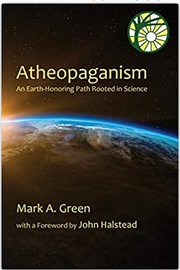
Sarah: It is hard to pinpoint it exactly. I think that Mark Green’s book on Atheopaganism, I have it here, is the kind of foundational Atheopaganism text – came out in 2019. But that is fairly recent. I think he has had his blog for a few years longer than that. Yeah, it is something that has been discussed a little bit for a few years but it’s only within the past maybe three or four years that I would say it’s become more popular and more people are talking about it and learning about it and seeing that it is something emerging. I’m also not entirely sure about that, I don’t know if there are any Atheopagans in the chat here who know more about it and know maybe more exactly when it started. But from what I’m aware of that’s when I think it emerged.
Angela: And how come you chose the term sceptical for yourself, you know, your nickname is the Skeptical Witch?
Sarah: Right, yeah. I think, well partially it has to do with the fact that I don’t consider myself an atheist necessarily, I don’t really identify with the label of atheist. It was more about, I guess, just wanting a term to define myself that had to do with questioning belief, I suppose, and questioning, you know, how things are sometimes just taken for granted and you know, thinking about being sceptical not only of magical perspectives or religious perspectives but also I think it is really important to be sceptical of taking for granted scientific perspectives or perspectives rooted in materialism and things. I think for me it is really just about questioning biases that we might have, about questioning preconceived beliefs and notions and things like that. So that’s kind of why I chose it. Yeah, and I guess like… Yeah.
Angela: And I’m guessing it is also about scepticism, the concept, the idea of… So you would identify more as sceptical, not as an atheist.
Sarah: Yeah, yeah. I think that I am sceptical about certain things to do with more traditional forms of Witchcraft and Neopaganism. Yeah, also that’s why I chose that. But also, I do identify more with, potentially, a naturalistic pantheist rather than an atheist. So I didn’t want to use the atheist kind of term.
Angela: I was thinking about a question but maybe I realise that it is a biased question. Because I was thinking, do you think that atheistic witchcraft may be more limited compared to other forms of Witchcraft that are… I cannot say more religious, because we said that atheism and religion don’t necessarily go together, but that employ more spiritual elements and deities. But I acknowledge that it can be a biased question.
Sarah: Yeah, I think that is an interesting question. I don’t know if it necessarily has to be more limiting. Especially if you approach it from the kind of perspective of thinking about it, it’s the experiences that matter more so than the explanations. So I did my fieldwork for my Masters of Social Anthropology among pagan Witches and practitioners in Scotland, who were not atheists and very much in the magical world and involved with that. I joined certain rituals and had certain experiences in the field while doing these things that were very impactful and transformative and were non-ordinary kinds of experiences, I guess you could say, and just because I didn’t necessarily interpret them in a magical framework when I came out of those experiences doesn’t mean I didn’t have those experiences. Does that make sense? So, even though I can come out of those experiences and rationalise them as I think a lot of people do, I don’t think that that necessarily takes away from having those experiences themselves and what was felt in the moment. And, you know, we all rationalise our experiences in certain ways and we all have certain frameworks of knowledge that we use to interpret reality and what happens to us and I think that whatever framework we are using, we are still able to have those experiences, I suppose, if we are open to them and I think that’s the thing. A lot of atheist practitioners are maybe less open to actually having these experiences and maybe stuck in that more intellectual, linear, rational-thinking kind of mindset, less willing to maybe open up to having these kinds of transformative experiences. But not everyone, so I think it really depends on how you are approaching it and if you are open to non-ordinary experiences, I suppose. If that makes sense.
Angela: Yeah, yeah, it does. And I was thinking it’s not limiting in terms of what you experience passively. I mean when there is a ritual and you are attending but what about the active Magick, the active Witchcraft that you can do? Because there are many spells that would involve, for instance, the help of deities or that they don’t just have to do with your personal psychological programming. They also have to do with somebody else, you know, completely different from you, it could be a healing spell, for instance. So by conditioning yourself, you are not healing somebody, you know what I mean? So I understand that if you are doing a spell, in that way, on yourself to get a job then you are sort of psychologically influencing yourself positively so that you might get a job. You are improving your chances, I mean. But there are many spells that have very little to do with the way you are acting in the world. They have more to do with people who are at a distance and that you may have little or no interaction with. So are those spells completely excluded in that sense? Would it be limiting to hold that kind of view? But obviously, it is kind of a bizarre question because if you don’t believe in gods and spirits, you don’t believe in them regardless of whether it is limiting or not. And maybe it is not limiting for somebody that doesn’t believe in it. I acknowledge the fact that it is a bit of a biased question. I’m still curious to know what you think about it.
Sarah: Yeah, yeah. I totally understand what you are saying, for sure. And I do think like, yeah, if you are thinking of it from that perspective, that yeah, that would be a limitation and something, you know, that maybe sceptical or atheistic Witches would be missing out on. But, yeah, for atheists, yeah, that doesn’t necessarily believe that divine entities or spiritual forces can have any effect on these external things then there is no point in doing it.
Angela: Yeah, that’s what I said, it’s a biased question. If you don’t believe at all in spirits and entities it’s like saying, oh, is it limiting to not employ a non-existent unicorn in my practice? So I guess that I was still coming from a point of view of, you know, someone that would endorse a theistic kind of witchcraft.
Another… sorry, you were saying.
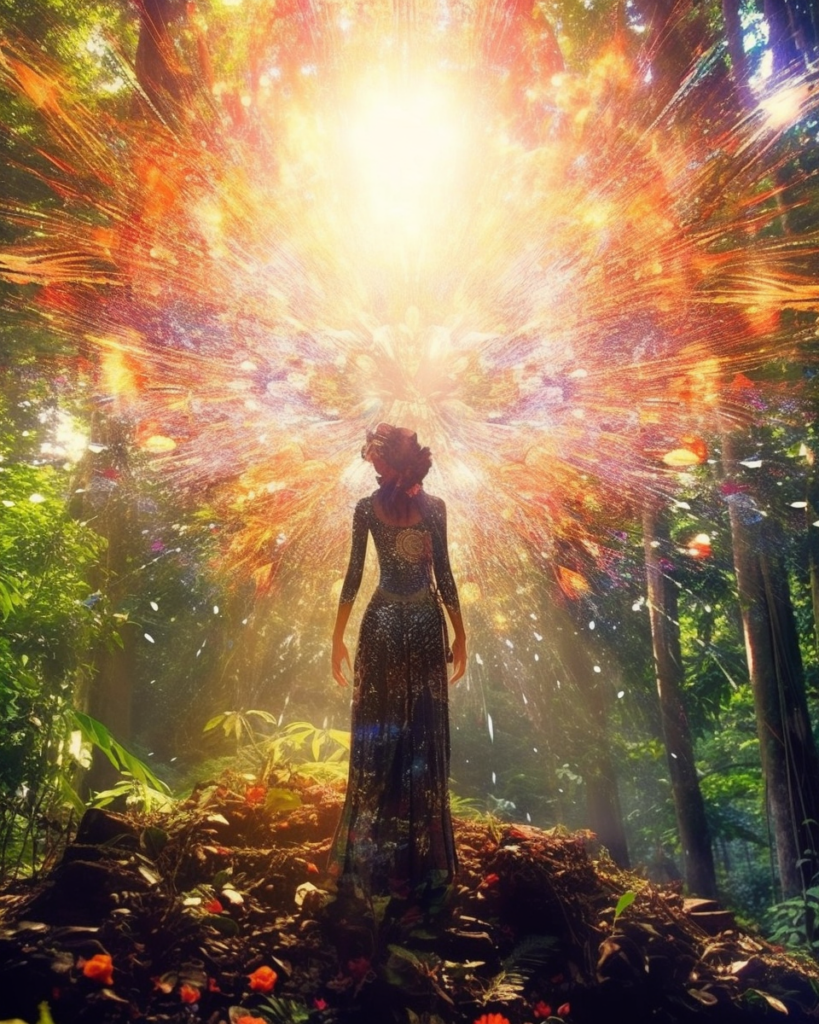
Sarah: I was just going to say that coming from a more chaos-influenced perspective, if you take that approach to sceptical Witchcraft, where belief can be more fluid rather than static and used as a kind of tool and is seen as complex and changing in different situations then Witches who take that approach, as I do sometimes, is treating these spirits and magical entities and divine beings as if they are completely real. So being able to engage in that for at least a time and, you know, maybe not always holding those beliefs but being able to use those beliefs and to work with them at the moment when it is beneficial. So, I don’t think it’s completely cut off and limited in that sense.
Angela: And I have another question, then I will let you go, let everybody go. So do you think that applying scepticism and only focusing on the material side of Witchcraft is a form of reductionism based on a positivistic mindset? You know that after Descartes and the idea of the dualism between the physical and the metaphysical, there have been, especially after positivism, this idea that only certain knowledge can come from things that can be measured, that can be, you know, that you can measure, that you can weigh and not everything in life can be weighed and measured and there are things that we experience that are beyond that. Now I think that one thing that is often talked about in research is that Paganism and other forms of Esotericism have fostered the re-enchantment of the world, after the disenchantment that has occurred, where the entire experience of human beings, you know, the physical and metaphysical has been basically flattened to only the physical where the only thing that you can acknowledge and see and be certain about is the physical and everything outside of that, even if it happens, it doesn’t matter, it’s kind of bracketed. As Jack Hunter says in a publication, it’s put in brackets and it’s just excluded from the realm of things that exist. So do you think that endorsing sceptical Witchcraft could fall into the worldview where the only aspects of reality that are acknowledged are the physical ones, the ones that can be weighed and measured and repeated?
Sarah: Yeah, this is actually a huge question that is driving my dissertation and one of the questions that I was asking going into it. What I want to know about these communities is, is there that sense of disenchantment? Do they create enchanted worlds still? Even without these necessarily spiritual or magical elements in the way that they view reality. Especially looking in relation to the environment too, because within this like the Weberian notion of the disenchanted world. Men – human beings who know the world through their mastery of it and that includes the mastery of nature and looking at this question of, you know, if the world is disenchanted, if nature is disenchanted, how are people engaging with it? Is there that kind of mastery element of it? Is there this hierarchical human, non-human split? Is this Cartesian dualism maintained, right? Is there a separation between subject and object, mind and matter, these kinds of things? That’s something that I’m curious to know going into this. Because the scientific way of seeing the world is often associated with this kind of disenchantment and you know, instrumental reason and things like that. So, you know, for people who are very committed to a scientific perspective but who also seek spiritual experiences in nature, I want to know how they navigate that and how they bridge that divide. And yeah, I personally think that the world doesn’t have to become disenchanted, just without magic and without even religion.
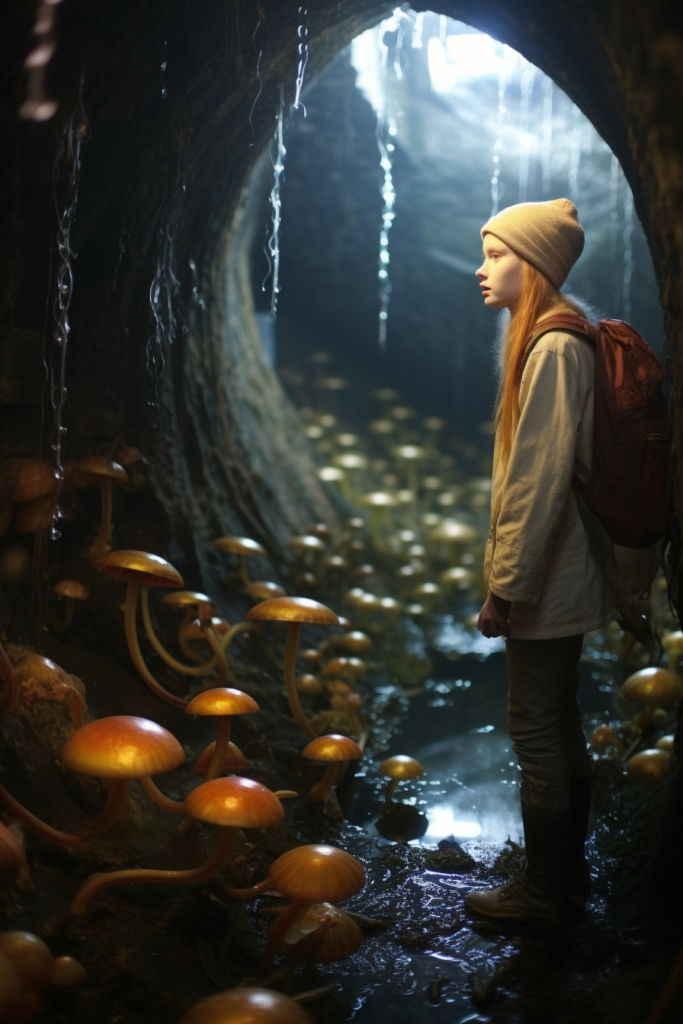
So I think that coming from a non-religious, more materialist perspective the world can still have a kind of enchantment to it and there are various kinds of ways of thinking about this. For me, my experience has been very influenced by new materialism and eco-materialism, enchanted materialism – so of moving away from these old ways of thinking about the materialistic world and thinking about matter instead as something that is vibrant and itself enchanted and being able to get into these interconnected ways of thinking and being through these magical mindsets and connecting within the natural world in ways that go beyond anthropocentrism and human-centrism and being able to break down those Cartesian binaries. And, you know, get into a place where humans and non-humans and matter and meaning and everything is within these enchanted, interconnected sacred web that is maybe created by people who have these reverential perspectives towards nature. You know, that may be a way of getting around this whole disenchantment thing. And yeah, I’m very influenced by scholars like Lori Beaman who have this idea of ‘mundane transcendence’ or ‘radical immanence’ that is enchanted. And you know, getting away from thinking about the way that the connection between religion and enchantment is a necessary connection and seeing how in this secular world that we live in, there is enchantment still all around and there are just different ways of accessing it. So hopefully that made sense. I’m just kind of rambling a little here.
Angela: Yeah, I find it very fascinating. I feel I’m more persuaded after this conversation. Well, more than persuaded, I would say that I understand it better, definitely. So thank you so much for being here with me and enlightening us about atheistic and sceptical Witchcraft.
Sarah: Yeah, and thank you so much for having me.

Angela: Yes, absolutely. And for all of you guys, go and subscribe to her channel too. You also have Instagram, right? Where can people find you?
Sarah: I think it’s @skeptical.witch on Instagram, with periods in-between them.
Angela: So thank you again, Sarah, for being here with me, it was really a pleasure.
And for all of you guys, thank you for being in the chat and for being here with me and Sarah to participate in this conversation. If you have further questions please leave them in the comments below. And whether you are watching this live or if you are watching it afterwards, the recorded version, please don’t forget, if you liked this conversation, don’t forget to SMASH the Like Button, subscribe to the channel, activate the Notification Bell so that you be always notified when I upload a new video and share the video with your friends that might be interested, this one and other ones – share everything and thank you so much for being a part of the Symposium and stay tuned for all the Academic Fun.
Bye for now.
First streamed 12 Dec 2022
